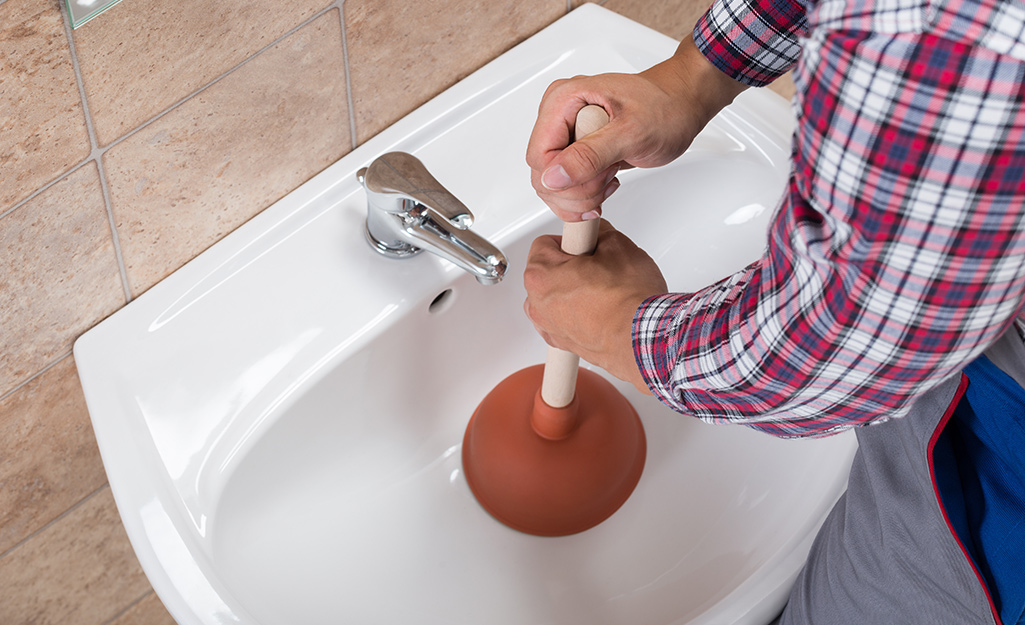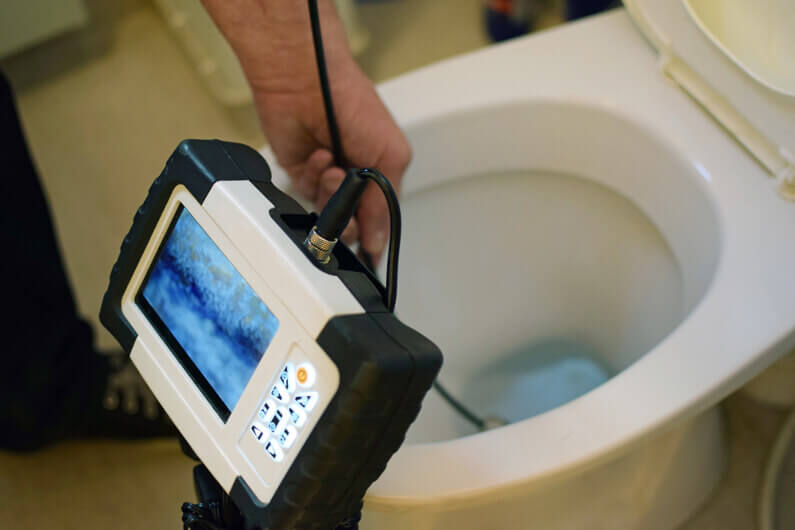Ways to Handle a Blocked Drain Prior to Consulting Plumbing Experts
Ways to Handle a Blocked Drain Prior to Consulting Plumbing Experts
Blog Article
This article in the next paragraphs relating to Some easy tips to fix blocked drains is really fascinating. You should look it over.

Intro
Handling an obstructed drain can be a discouraging experience, interrupting day-to-day activities and possibly causing damages to your building. However, prior to connecting to plumbing specialists, there are steps you can take to resolve the issue yourself. In this overview, we'll check out do it yourself services and preventive measures to deal with a blocked drain properly.
Identifying the Issue
The first step in addressing a blocked drainpipe is identifying the signs. Slow drainage, gurgling noises, foul odors rising from drains, or water support up are common indications of a blocked drainpipe. Recognizing these signs early can aid stop even more issues.
Selecting the Right Pipes Service
When choosing a pipes solution, think about aspects such as experience, licensing, and client testimonials. Choose a credible plumbing technician with a performance history of quality workmanship and transparent prices methods.
Price Considerations
The price of professional drainpipe cleaning services can vary depending on the extent of the clog and the plumbing technician's rates. Request quotes from several carriers and inquire about any type of added fees to ensure openness and prevent shocks.
Safety and security Precautions
When attempting DIY drainpipe cleansing, prioritize safety and security. Put on protective gloves and eyeglasses to avoid contact with damaging chemicals or bacteria. Never ever mix various drainpipe cleaning products, as this can generate hazardous fumes.
Instance Researches
Real-life examples highlight the effectiveness of DIY remedies and the importance of timely expert intervention in fixing drainpipe blockages.
Usual Reasons For Blocked Drainpipes
Understanding the aspects that contribute to drain pipes clogs is vital for reliable resolution. Typical culprits include hair, soap residue, oil, food particles, and international objects like sanitary items or paper towels. Tree roots attacking underground pipelines can additionally cause substantial clogs.
DIY Solutions
For small blockages, several DIY options can be efficient. Pouring boiling water down the drain can assist dissolve oil and particles. Sodium bicarbonate and vinegar or a combination of salt and cooking soda can serve as all-natural cleansers. Utilizing a plunger or plumbing snake to displace blockages is another alternative.
Devices and Devices
Having the right tools handy can make DIY drain cleaning extra reliable. A bettor is a flexible tool for clearing obstructions in sinks, commodes, and showers. A pipes snake or auger can get to deeper blockages, while drainpipe cleansing chemicals can be utilized meticulously for persistent clogs.
Safety nets
To avoid future obstructions, embracing preventive measures is vital. Set up drain guards or strainers to capture hair and debris before they enter the pipes. Regularly flush drains pipes with warm water to dissolve grease build-up, and avoid disposing of grease or solid waste down the drain.
When to Call an Expert
While DIY services can resolve minor obstructions, certain signs suggest the need for professional support. Persistent blockages, foul odors regardless of cleaning efforts, or multiple drains backing up all at once are warnings that call for professional intervention.
Verdict
By complying with the tips detailed in this guide, you can successfully tackle obstructed drains pipes and stop future plumbing concerns. Whether opting for DIY remedies or seeking professional aid, prompt activity is key to preserving a healthy and balanced plumbing system and protecting the stability of your home.
How to Clear a Clogged Drain Yourself (And When to Call In the Professionals)
What Can Clog a Drain
Dirt Skin flakes Hair Grease Soap scum Food Offset pipes Tree roots Small objects Mineral buildup DIY Tricks to Unclog a Drain
You can fix this! Once you have identified the source of the clog (or have a vague idea), you can try one or a combination of these fixes in order to clear your plumbing.
Wire Hanger or Snake
Untangle and clear out hair from a drainpipe with a homemade snake. Use a straightened-out wire hanger with a 90-degree angle hook to locate the clog and drag out any unwanted material.
Remember not to push the clog further down to where the wire hanger cannot reach! If you need to follow up with a plunger, give it a try. Your efforts might be more successful after it’s been wire-snaked.
If you want to get fancy and don’t have a wire hanger to spare, head to the store and pick up a hand-operated drain snake. You can get one for $10-$30. It may save you the hassle, and provide additional length to reach deep into the clogged pipe.
Plunger
A cup plunger has a suction cup attached to a wooden handle. The rubber creates a seal around the drain, and increases the pressure force of the plunger.
Plunge for 30-second increments to loosen the clog. This may need to be repeated over the course of 15-20 minutes. Once plunged, run the water to flush the remaining material out of the drain.
Remember– never use a plunger if you have used a chemical drain cleaner. These chemicals can splash up from the force of the plunger and cause serious injury or burns.
Boiling Water
Hot water can sometimes break up materials into a flushable amount. Dirt, grease, and soap buildup requires heat in order to unstick from surfaces.
Take your kitchen kettle and heat your water to a boil. Once it reaches a rolling boil, pour it directly down the drain into the blockage. Carefully follow with plunging, if necessary.
Don’t worry if this takes more than one try! It can often take multiple kettles and repeated plunging in order to clear a particularly stubborn clog.
Chemical Drain Cleaner
As a last resort, pick up a bottle of chemical drain cleaner. Drain-cleaning chemicals are potent, and not very good for the environment.
You may need to wear protective eyewear in gloves before handling your bottle of chemical drain cleaner. Follow the instructions printed on the bottle, and flush with water as soon as the instructions allow. Do not follow with plunging.
Baking Soda and Vinegar
As a safer alternative to chemical drain cleaner, baking soda and vinegar can create a chemical reaction that clears tough clogs.
Combine one cup of cleaning vinegar with one cup of boiling water, and set aside. Once you have done this, pour half a cup of baking soda down the drain. Give the baking thirty seconds to settle and cover a large portion of the problem drain.
Following the baking soda, pour down your vinegar and hot water solution. Once the vinegar and baking soda combine, the mixture will bubble and fix. Let this reaction fizzle in the drain for about an hour.
After an hour, follow with a kettle’s worth of hot water. The heat and liquid should flush out any remaining material.
When to Call a Plumber
If your DIY attempts haven’t cleared your clog drain, it’s time to call in a professional. It’s not worth losing access to your kitchen sink or high-traffic bathroom. A clog in a vital area can keep you from the things you’d rather be doing, and derail your routine.
Anytime a clog is causing water to spread is a time to call in a plumbing service. What starts out as a little bit of water can quickly grow into serious, expensive water damage.
Additionally, a serious clog can result in burst pipes or serious leaks. Make sure you know when to take it seriously!
https://myguysnow.com/how-to-clear-a-clogged-drain-yourself-and-when-to-call-in-the-professionals/

We hope you enjoyed our excerpt on . Many thanks for taking a few minutes to read through our blog. In case you enjoyed reading our post please don't forget to share it. I am grateful for being here. Return soon.
Book Now! Report this page